Jim Davis and Michael Graham knew something was up in their hometown of Orlando, Florida.
But they couldn’t put their finger on it.
At the time, both were pastors at Orlando Grace Church, an evangelical congregation, and saw a study showing their community had the same percentage of evangelicals as less traditionally Christian cities like New York and Seattle. Their city also ranked low on a list of “Bible-minded cities” — with a profile more akin to cities with secular reputations than Bible Belt communities like Nashville, Tennessee, or Birmingham, Alabama.
Which didn’t make any sense to them.
Orlando was home to the headquarters of Cru, a major campus ministry, along with Wycliffe Bible Translators and other major Christian nonprofits, as well as booming and influential megachurches like First Baptist and Northland Church.
Your tax-deductible gift helps our journalists report the truth and hold Christian leaders and organizations accountable. Give a gift of $30 or more to The Roys Report this month, and you will receive a copy of “Hurt and Healed by the Church” by Ryan George. To donate, haga clic aquí.
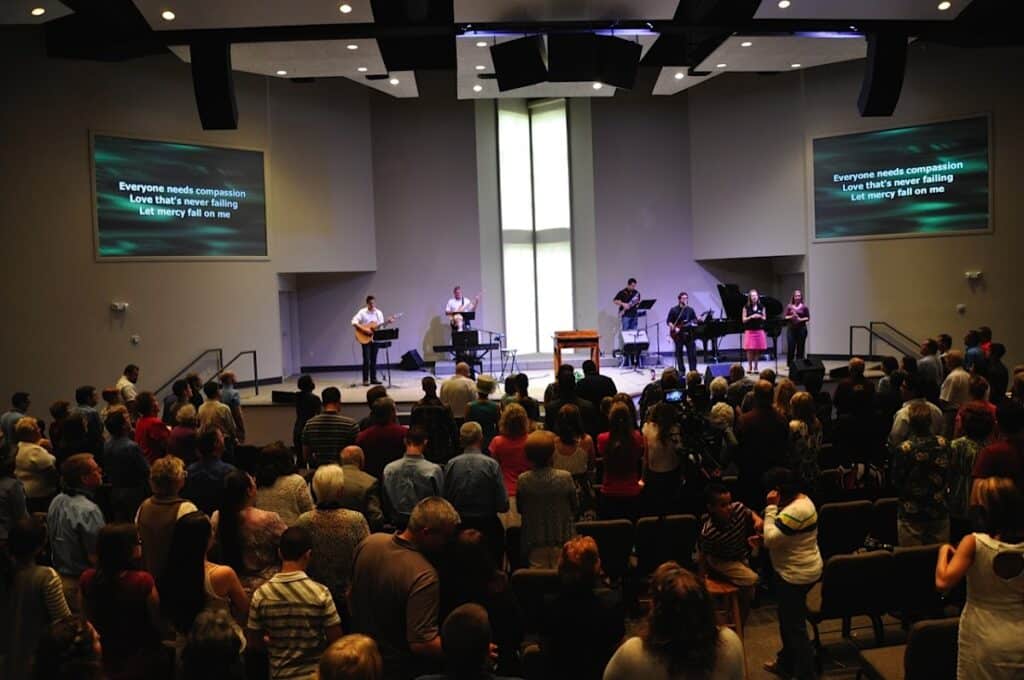
And Orlando felt different from New York or Seattle.
“Then it hit us — it’s because our people used to go to church,” said Davis.
He and Graham knew of a number of people who had stopped going to church, and the two pastors started wondering how common that was. They began looking for data, and while there were studies of the so-called nones — those who do not identify with any faith group — there were few about churchgoing habits.
Eventually, they decided to do one of their own.
With the help of friends, they raised about $100,000 and enlisted the help of two political scientists who survey religious trends in the U.S. — Ryan Burge at Eastern Illinois University and Paul Djupe of Denison University — to create what they think is the largest ever study of folks who stopped going to church.
That study, combined with other datos about America’s changing religious landscape, led them to a sobering conclusion.
“More people have left the church in the last twenty-five years than all the new people who became Christians from the First Great Awakening, Second Great Awakening, and Billy Graham crusades combined,” Davis and Graham write in their book, “The Great Dechurching: Who’s Leaving, Why Are They Going, and What Will It Take to Bring Them Back?”
The book and the study that prompted it were driven by both curiosity and stubbornness.

“If we’ve got a question that we need an answer to, we’re not going to stop until we get it,” said Graham, who is now program director for the Keller Center, which helps churches adapt to the changing religious landscape.
Davis and Graham said they wanted the study to be informative and rigorous, which is why they decided to work with academic researchers. The study included a survey of 1,043 Americans to determine the scope of dechurching — which was defined as having attended service at least once a month in the past and now attending less than once a year. That initial survey found that about 15% of Americans are dechurched.
A second phase included a survey with detailed questions for 4,099 dechurched Americans. Their answers were sorted in clusters using machine learning, said Burge — creating groups of people who had statistically similar answers to questions.
“It’s a wonderful way to look at religion without any sort of bias or prejudice,” said Burge. “It just lets the data speak for itself.”
The book appears to have struck a nerve with both church leaders and the broader public. Data from the book was featured in a series of New York Times columns about the changing religious landscape and what it might mean for American culture.
Burge said the book’s surveys build on previous studies of the nones as well as studies showing the decline of congregational life in the United States. The 2020 Faith Communities Today estudio, for example, found the median congregation in the United States stood at 65 people, down from 137 two decades ago.
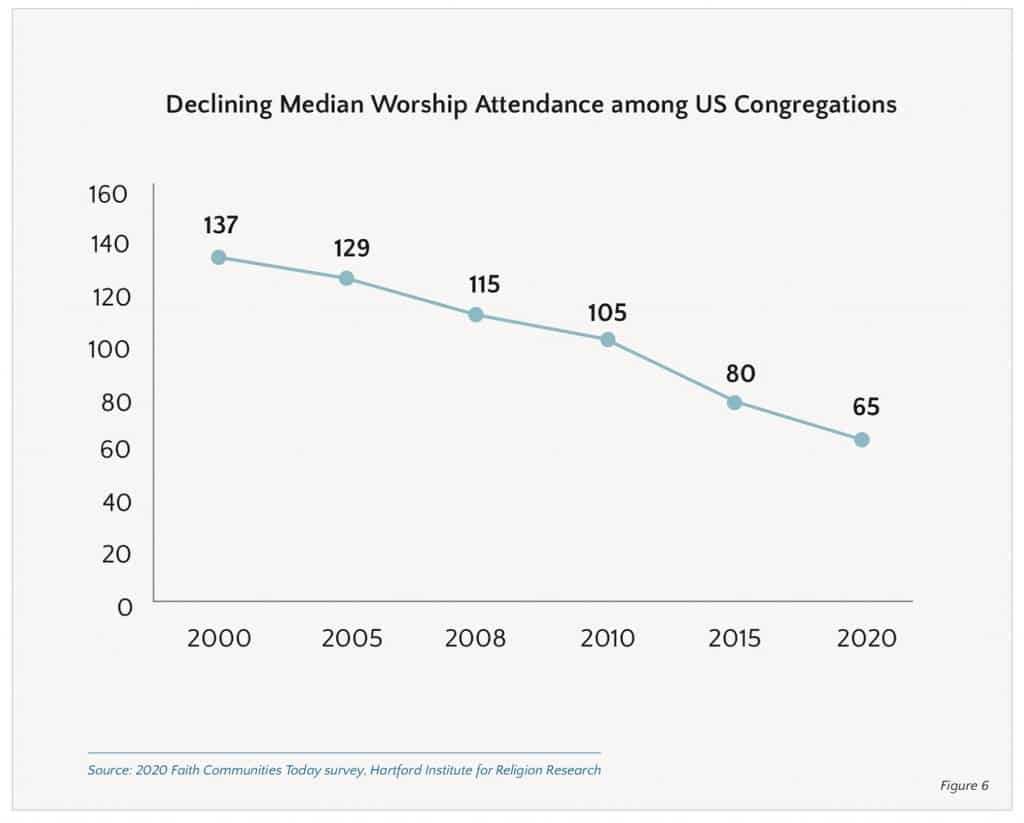
A recent look at the impact of the impact of the COVID-19 pandemic fundar that the median congregation in 2023 is now 60 people. Meanwhile, the Pew Research Center projects that nones could make up as much as half the population by 2070.
“For a long time, the church declined and no one really cared,” said Burge. “And now people are seeing the decline and saying, ‘Wow, this is really becoming a problem now.’ We have reached an inflection point where people are talking about religion in a more thoughtful, nuanced, statistically driven way.”
The dechurching study eventually yielded profiles of different kinds of dechurched Americans: ”cultural Christians,” who attended church in the past but had little knowledge about the Christian faith; “mainstream evangelicals,” a group of mostly younger dropouts; “exvangelicals,” an older group who had often been harmed by churches and other Christian institutions; “dechurched BIPOC Americans,” who were overwhelmingly Black and male; and “dechurched mainline Protestants and Catholics,” who had much in common despite their theological differences.
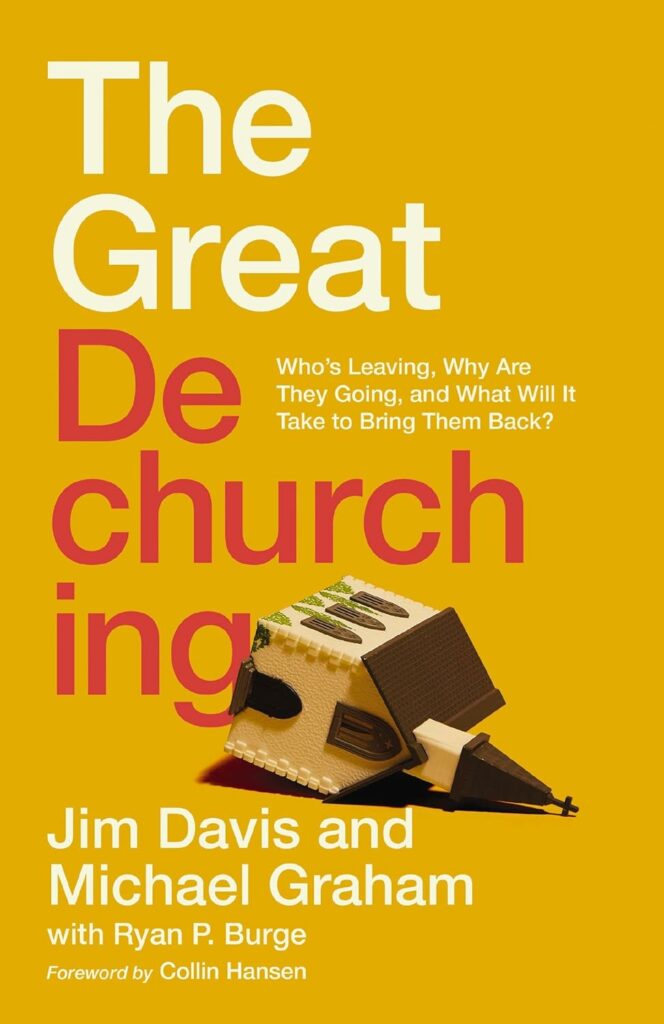
The researchers also sorted dechurched Americans into two major categories: the “casually dechurched,” who lost the habit of attending services because they moved or had scheduling conflicts; and “church casualties,” who stopped attending because of conflict or because they’d experienced harm.
Each of the five profiles had a wide range of reasons for leaving their churches and why they might be open to returning. For so-called cultural Christians, they left in part because their friends weren’t there (18%) and because attending was not convenient (18%) but also because of gender identity (16%) or church scandal (16%).
Mainstream evangelicals dropped out because they moved (22%) or services were inconvenient (16%) but also because they did not feel much love in church(12%). Exvangelicals in this study left because they did not fit in (23%), because they did not feel much love in the congregation (18%), because of negative experiences with evangelicals (15%) and they no longer believed (14%). Many BIPOC dechurched Americans left in their early 20s, often because they did not fit in (19%) or had bad experiences (11%). Mainline Protestants left because they moved (25%) or because they had other priorities (15%) or did not fit in (14%), while Catholics who are dechurched said they did so because they had other priorities (16%) or had different politics than others in their parish (15%) or the clergy (15%).
Davis said that people leaving churches is often seen as a catastrophe caused by church misconduct or hurt. That plays a role, he said, but the reasons people leave are more complicated and sometimes more mundane.
Dechurched also differ in why they might return. Mainstream evangelicals were looking for friendship, while mainline and Catholic dechurched Americans were more interested in spiritual practices and outreach programs.
Many dechurched Americans might return to churches if they found a stable and healthy congregation, said Davis and Graham. But those congregations aren’t always easy to find, given the level of polarization affecting churches and other institutions.
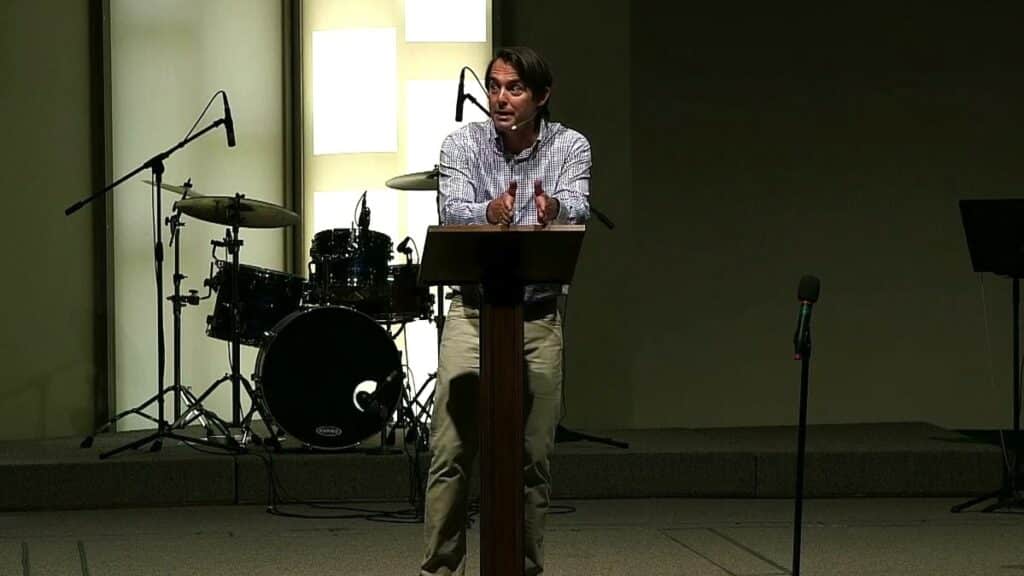
Among other findings, Americans who have higher levels of education or are more successful in life are less likely to drop out. That concerned Davis, who worries that churches only work for people on the so-called success path in life.
“Institutions in America tend to work for people who are on a traditional American path,” he said. “And unfortunately, the church has become one of those American institutions.”
Despite the sobering statistics, Davis and Graham remain hopeful about the future and end their book with a set of exhortations for church leaders.
Part of their advice: Be patient. The Great Dechurching didn’t happen overnight and won’t be reversed quickly. Congregations will need what the authors call “relationship wisdom” and a “quiet, calm and curious demeanor” where leaders are quick to listen and slow to speak.
“The path forward,” they write, “is not easy but it is simple.”
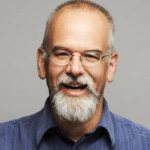 Bob Smietana es reportero nacional de Religion News Service.
Bob Smietana es reportero nacional de Religion News Service.
Editor’s note: ‘The Great Dechurching’ is available this month for supporters of our nonprofit journalism work (click below for details).




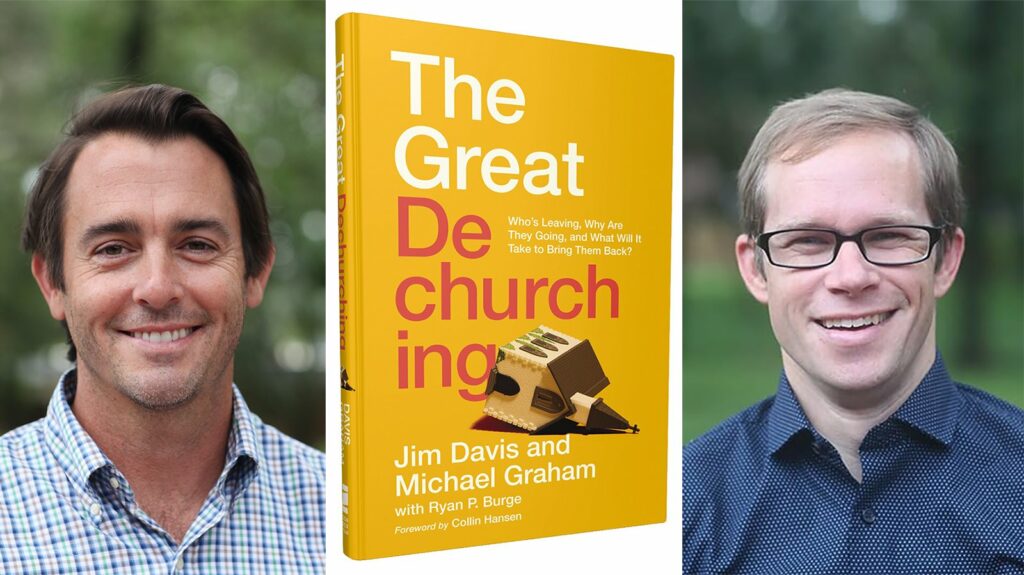
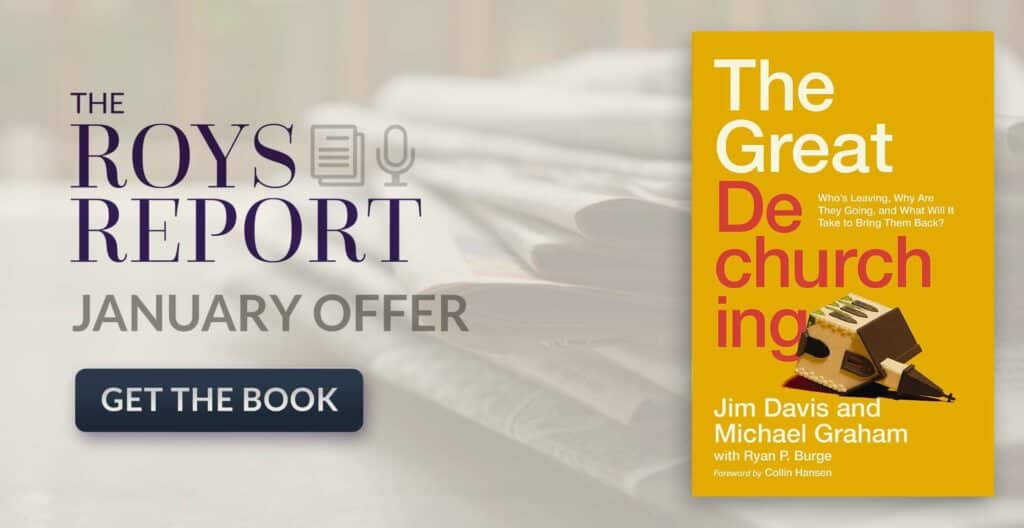

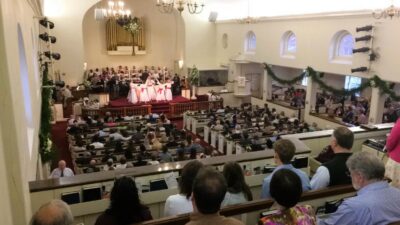
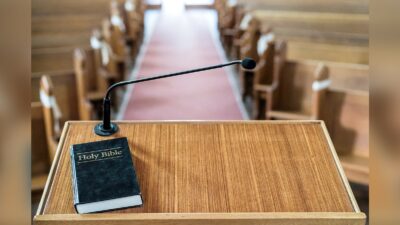





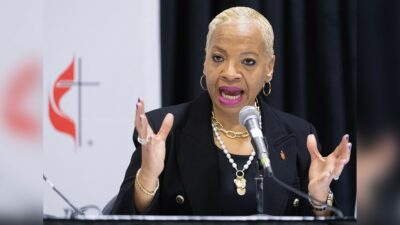






11 Respuestas
Leaving Church, Finding God: Discovering Faith Beyond Organized Religion by Daniel Foster
Good book, may strike a chord with some.
Maybe people will come back when evangelical churches stop being political rallies/cult meetings who worship and genuflect towards their real Lord and Savior Donald Trump. But that ship has sailed, the trend will only accelerate.
Evangelicals were so afraid of losing influence, numbers, and power in culture, society, and politics, they sold their birthright to a bowl of porridge when they latched onto Trump. But as Jean de La Fountaine said, “One often meets their destiny on the road he took avoid it.” And that it exactly what has happened and will continue to happen at a faster rate.
Evangelical Christian today means MAGA Trump-worshiping cultist and more and more people are seeing Evangelicals are the problem, and not the solution. They have lost all authority and credibility to speak about cultural morals when they wholeheartedly support a degenerate narcissist like Trump.
100% !!! I can’t for the life of me believe this is what it is, but it is!! Who would have ever thought Christians would put a man of his lack of character and indefensible moral character up as their poster boy. And he continues to disappoint, calling the Jan 6 rioters and criminals, “hostages”. They destroyed properly, struck unimaginable fear in everyone and destroyed lives that day. The violence done by his supporters was/is unimaginable and many of our capital police will never be the same. The PTSD they have suffered at the hands of Trump supporters is devastating but he calls them hostages bc they are being held accountable and punished for their brutal violent behaviors. I just can’t believe it. Praying Thy kingdom come, Thy will be done.
Can’t disagree with a word you said. Well stated!
Regardless of whether Trump is a good or bad guy, the whole premise of depending on a person (or party of persons) is a recipe for disappointment (Jeremiah 17:5). Idolatry and divided allegiances have consequences (Ezekiel 14:1-5).
Believers in Jesus are citizens of the Kingdom of God (John 18:37), and Resident Aliens (Hebrews 11:13, 1 Peter 2:11) here on earth. I wonder how many see themselves this way. Societies and governments will truly change when the church gets back to being ambassadors of the Kingdom, reflecting the light of Jesus to the world, one person at a time.
So many factors have led to the de-churching of America. Politics in the Church (In the age of Trump) have been a significant factor but much of this started years before the rise of Trump. Newer generations have different priorities and attitudes towards religion in general and this has also been a significant factor.
How churches will go about fixing this will vary from leader to leader and from church to church. The more staunchly conservative churches will most likely see any attempt to make changes in order to draw back more in through their doors as an compromise. Most of these congregations will most likely become more insular and retreat towards a form of Fundamentalism.
All of this brings to mind the 2009 essay by the late Michael Spencer (The Internet Monk) who penned his popular essay “The Coming Evangelical Collapse”.
It did start before as you said, but it has only accelerated under Trump. To borrow from Hemingway, “Gradually then suddenly.” HT to the late Internet Monk, it was one of my goto blogs back in the day.
Went back and read this article. Excellent read. So glad you suggested it. I had never heard of the Internet Monk. Seems like a lot of interesting reads.
Acts 20:28 “Keep watch over yourselves and all the flock of which the Holy Spirit has made you overseers. Be shepherds of the church of God, which he bought with his own blood.” Jesus owns His Church. He sets the agenda, and if the shepherds administer this, then HE can take responsibility for the results.
“With the help of friends, they raised about $100,000 and enlisted the help of two political scientists who survey religious trends in the U.S. — Ryan Burge at Eastern Illinois University and Paul Djupe of Denison University — to create what they think is the largest ever study of folks who stopped going to church.” “A second phase included a survey with detailed questions for 4,099 dechurched Americans.”
Hmmm…did they forget anything?
1 Samuel 30:8 NIV “and David inquired of the LORD, “Shall I pursue this raiding party? Will I overtake them?” “Pursue them,” he answered. “You will certainly overtake them and succeed in the rescue.””
Did the political science experts inquire of the Lord?
I have been “dechurched” for 17 years. I left because church leadership stopped asking the Lord. Psalm 127:1 “Unless the LORD builds the house, the builders labor in vain.”
The survey now has 4,100 responses. That one was gratis.
Great article and great discussion.almost all church surveys just ask people if they go to church, or if they are Christian, etc.
Having been involved with multiple churches over the last 20 years, I can tell you the attendance inflation is through the roof.
People will say they are Christian because they are raised Christian, but they haven’t been to church since they were 18. people answer like they think they should answer survey, not reality. And the politicos love that because as someone above said – the evangelicals, which are made mostly of my generation GenX, turns out have been a tragically easy group to manipulate for a voting group. And higher numbers in such surveys gives them the appearance of more power and clout, when it’s all a lie.
Sit in the church parking lot on a Sunday and see how many people actually walk inside. We all know it’s been plummeting the last 50 years, all mainline denoms are now hitting their great drop off they’ve known was coming for decades. Many of those mainlines are irrelevant now, and will fizzle out within the next 5 to 10 years, which is shocking how quickly that has accelerated..
The evangelicals, with all their problems, I thought might have been more resilient, because a higher percentage still believe, but watching how Trump has taken them over is just stunning.
Again, great article, great discussion above.
eric,
Of course the term evangelical has become so vague, squishy, etc that the term means nothing anymore. Of the fact the churches helped that process immensely by catering to whims and the least common denominator. This was to get giving units to be entertained and for pastors and their teams to have adoring, idolizing fans and cult followers. The reason so many are dones and nones (like me), because they see this (along with the Trump worship/cult rallies that church services have become) as nothing that even remotely biblical or evangelical (as characterized by the Bebbington Quadrilateral).